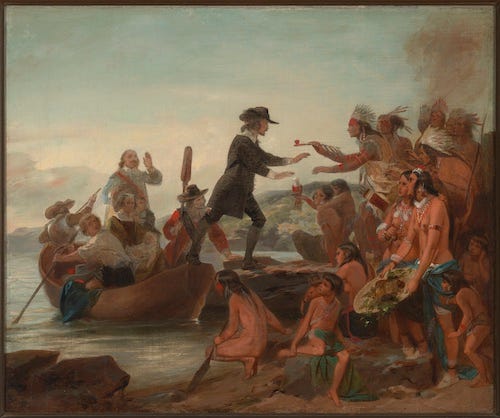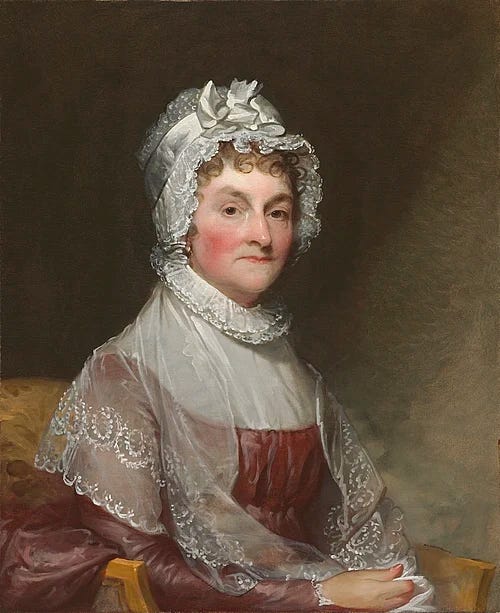Self-Governance: As early as the inception of the North American colonies, settlers in the territories experimented with forms of representative democracy. These local governments inspired by Ancient Athens, the Dutch Republic, and Iroquois Confederacy expressed equality and rule of law over power. This demonstrated to the people of the colonies that reliance on a monarchical despot with a “divine right” to rule was no longer necessary or logical. This was exacerbated with the overreaching taxation that followed the Seven Years War, many saying that the lack of colonial representation in parliament made these actions unjust. Thinkers like John Locke and Thomas Paine explained in written works that a government at every level should be created by the people for the people, and a nation whose ruler no longer listened to those they ruled should be removed. Rebellious acts among the general population became commonplace. Tar and fathering tax collectors, black market sales of trade goods, and the burning of effigies of King George. The British response of repression only pushed colonial officials closer to open rebellion. After actions like that of the Boston Massacre in 1770, the colonists had been shown how far the British would go to quell patriot behavior. The final straw being the battles of Lexington and Concord in 1775, no longer would the 13 Colonies reconcile with Great Britian. Instead in 1776, with the Declaration of Independence a new nation “free” of tyranny was created.

Religious Freedom: Many of the Founding Fathers saw the demand for a state religion as another act of repression. Originally, some colonial states were founded by those of religious outcasts from Great Britian, notably the Puritans of Massachusetts, the Quakers of Pennsylvania. and the Catholics of Maryland. Additionally, colonial statesmen Thomas Jefferson, Benjamin Franklin, and George Washington held a more extreme belief known as Deism. An Enlightenment creation that injected reason into church practices and devised that while God exists, humans have free will to determine their fate. Seeing that this diverse menagerie of beliefs would cause tensions, the Founding Fathers saw the need to remove the integration of religion with politics. By separating church from the state and allowing all to practice their religions, the government of the new nation would never have authority over these practices and religious interest would not directly influence the functions of government. In many ways, this ideal wasn’t fully realized until much later in America’s history, primarily Christian morality was intertwined with colonial society.

Social Restructuring: The language of equality within the Declaration of Independence, which explains that all men were created equal, was not wholly observed. While the franchise in the colonies was initially limited to white property owners, the practice of a hereditary aristocratic class was dismantled. This was done to open positions of power to the growing middle classes in colonial society. Yet even as the Revolution ended, the idea of opening the vote to everyone or allowing them to hold office was seen as dangerous to the new nation. Gender was another restriction; women were told they lacked the education and emotional ability to think critically. Abigail Adams spoke out against these theories. In letters to her husband John, she demands that the members of the Continental Congress remember their mothers, daughters, and wives. Unfortunately, this resulted in no change in the ideals of revolutionary statesmen. After the revolution though motherhood was combined with republican ideals, the education and upbringing of America’s next generation was placed on those denied their fundamental rights.
Enslavement: The issue of Slavery was purposely untouched in the Declaration of Independence as a matter of compromise. Seen as integral to the plantation economy of Virginia and the Carolinas, the idea of ending slavery was too radical for the Southern colonies of America. Founding Fathers like those of George Washington and Thomas Jefferson held slaves but saw the hypocrisy of saying that all men are created equal, while bondage existed. While the northern colonies in many ways despised the practice, even passing laws of abolition, a conflict of interest occurred. The Southern colonies in America threatened to leave the alliance of rebellious colonies if slavery was attacked. Unable to agree on some form of abolition, a compromise was made to remove any mention of abolition, so that all 13 colonies would remain aligned. This issue would continue to be a throne in the side of American politics, until the eventual outbreak of the American Civil War in 1861.

Modern View: It’s clear that while the American Revolution became a pivotal moment in human history, many of its original claims of liberty, equality, and freedom was contradicted by factors of the time. Really what made the Documents like the Declaration of Independance important was their influence to create a greater society with these values. After the Civil War the passage of the 13th amendment in 1865 destroyed the institution of slavery in the United States. The passage of the 15th Amendment in 1870 opened voter franchise to men of all races, religion, and color. Finally, the 19th amendment of 1920 removed all barriers of gender from access to suffrage. While we still aren’t in a perfect depiction of the “American Dream” outlined by the founding fathers, we still strive for that ideal each day.




